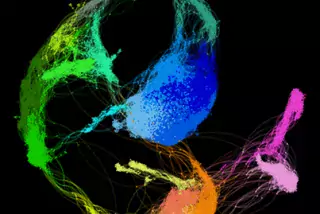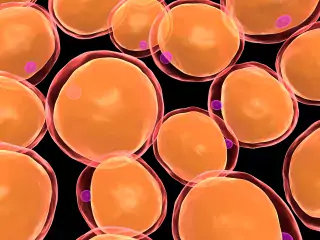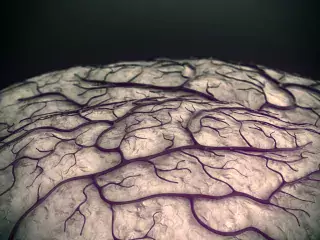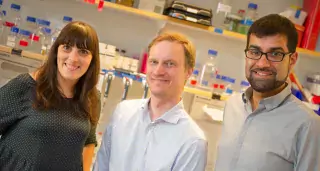News archive
On this page you can search for older news. Choose a topic, type of news or enter your own keyword to filter out news.
View compact

Researchers at Karolinska Institutet present a publicly available resource that can accelerate the use of so-called FISH techniques for studying how the genome is spatially organised in the cell nucleus. The new platform, which enables more cost-effective analyses for both research and diagnostic labs, is described in the scientific journal Nature Communications.
News

Three researchers at Karolinska Institutet have been appointed Wallenberg Scholar in 2019: Ernest Arenas, Sten Linnarsson, and Randal S. Johnson. The researchers – among the foremost in their field in Sweden – receive SEK 18 million each from the Wallenberg Foundations in the form of a five-year grant for free research.
News
Knowledge of a newly discovered genetic disorder, which means that a person cannot produce the protein TXNIP (thioredoxin interacting protein) in their cells, can open for the development of new diabetes drugs. This is shown in a study from Karolinska Institutet published in the journal Diabetes.
News

New research on how cancer mutations influence a certain type of receptor on the cell membrane opens the way for the development of tailored drugs for certain cancers, such as rectal cancer and lung cancer.
News
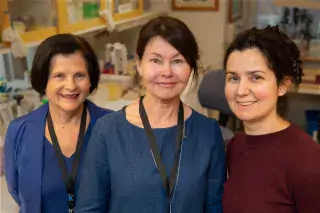
Acute porphyria is a group of uncommon diseases that can cause severe, potentially life-threatening attacks of abdominal pain, nausea, vomiting and paralysis. Liver transplantation is currently the only effective treatment available for the most seriously afflicted patients. A clinical trial conducted in collaboration with researchers at Karolinska Institutet in Sweden now shows that a new drug candidate can prevent attacks in these patients. The study is published in The New England Journal of
News
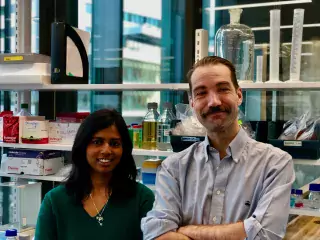
For reasons that are unclear, schizophrenia patients have fewer connections between the neurons in the brain. Researchers at Karolinska Institutet, Sweden, and Massachusetts General Hospital, USA, have now succeeded in creating human cell models that show that there is an excessive degradation of connections in the brain of these patients, and they have been able to link this to a genetic risk variant for the disease.
News

A new study shows that there is a very limited regeneration of cells in the brain of patients diagnosed with multiple sclerosis (MS). These findings underline the importance of treating MS at an early stage of the disease progression, when the affected cells can repair the damage as they are not replaced by new ones. The results are published in the journal Nature by researchers from Karolinska Institutet and Uppsala University.
News
There is a large, untapped potential for developing drugs against cancer, fibrosis and cardiovascular diseases by targeting a family of receptors known as Frizzleds, researchers at Karolinska Institutet in Sweden believe. In a new study published in Science Signaling, they identify how these receptors are activated in the cell membrane and the processes that are then triggered within the cell.
News

Researchers at Karolinska Institutet and the University of Sussex have discovered that the process of copying DNA generates a brake signal that stalls cell division. This molecular brake ensures that the cell has two complete copies of DNA before it divides and thus prevents DNA damage and cancer development. The study is published in the scientific journal Molecular Cell.
News
Researchers from the global Human Cell Atlas Consortium report that they have sequenced a quarter of a million separate cells that are of importance for early development of organs such as the liver, skin and kidneys. Sten Linnarsson at Karolinska Institutet is participating in the project.
News
This year’s Nobel Prize in Physiology or Medicine has been awarded for work dedicated to the connection between celestial body movements and molecular fluctuations in our cells. Or, in simpler terms, to our internal biological clocks, also known as our circadian rhythm.
News
A new study, in which researchers at Karolinska Institutet participated, has found that in mice adjusting levels of a compound called kynurenic acid can have significant effects on schizophrenia-like behavior. The study is published in the journal Biological Psychiatry.
News

